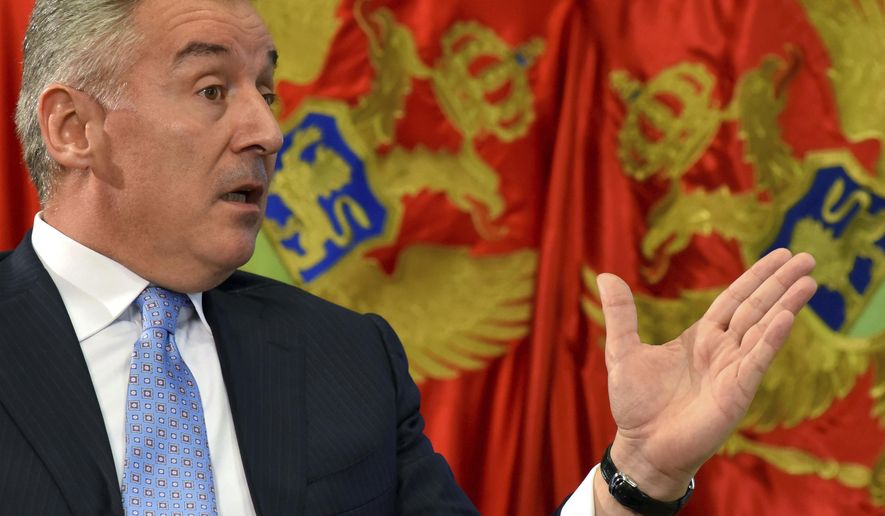PODGORICA, Montenegro (AP) - The pro-Western president of Montenegro, who has defied Russia to steer his small country into NATO, has warned that the integration of the Western Balkans into the European Union is crucial for the bloc to protect itself from growing Russian and Chinese political and economic influence in the region.
Milo Djukanovic told The Associated Press in an interview that Britain’s chaotic divorce from the EU and other crises in the bloc seem to have diminished the union’s enthusiasm to accept new members, but that Europe must not hand over the strategic region to other global players.
Djukanovic said Russia and China have legitimate interests in the Balkans, where Russian political influence has grown, especially in neighboring Serbia. China, meanwhile, has spent heavily on infrastructure to increase its clout in central and Eastern Europe.
“But the question is not whether Russia, China or a third country have their interests in the Balkans. The question is why Europe is handing over that region to anyone else,” Djukanovic said. “I believe this is primarily Europe’s interest.”
Djukanovic insisted that if the Balkan countries - which went through a series of wars in the 1990s’ and are still lagging behind in reforms needed for EU entry - remain outside EU’s grasp, the bloc’s own future would be jeopardized.
“The alternative . in fact is the destruction of Europe,” Djukanovic said. “I think that Europe must protect itself from that destruction and must clearly recognize its own strategic interests.”
After joining NATO in 2017, Montenegro is the next in line to join the EU, with 2025 slated as the earliest possible date for entry. Serbia too could join by 2025, while Albania, Macedonia, Kosovo and Bosnia have not yet reached that level of pre-entry negotiations.
However, France and some other EU states have voiced skepticism even about those dates in the wake of the turbulent British split from the bloc, warning that Europe must first deal with its own problems before it can expand.
Djukanovic insisted that the EU should pursue its enlargement policies regardless of the crisis.
“We must not treat this issue as a Montenegrin issue, or a Balkan issue, we must treat it as a European issue,” he warned. “There is no better consolidation of the European Union than its further unification.”
Djukanovic, a veteran politician who has ruled Montenegro for 30 years, cited an alleged attempted coup in 2016 in Montenegro that he said was orchestrated by Russia’s military secret service as an example of Moscow’s “destructive” policies in the region.
Djukanovic said “there is no doubt” that Russia has been trying to prevent the Western Balkan nations from entering NATO. He said it is “perfectly clear” that Moscow has “destructive policies toward the EU, toward Europe’s unification and the Western values in general.”
Foreign powers, Djukanovic suggested, are also playing a part in recent protests in Montenegro that seek his ouster from power over corruption allegations.
“A strategic political and cultural battle is still being fought in the Balkans,” he said.
Djukanovic expressed hope that, once resolved, the Brexit crisis will boost Europe’s unity rather than undermine it.
“Perhaps this experience with Brexit will strengthen the European Union,” said Djukanovic. “I don’t see another European Union member rushing to repeat the British adventure.”
“It turns out that it is hard to enter the EU, but it’s even harder to leave,” he said.
___
Jovana Gec contributed from Belgrade, Serbia.




Please read our comment policy before commenting.